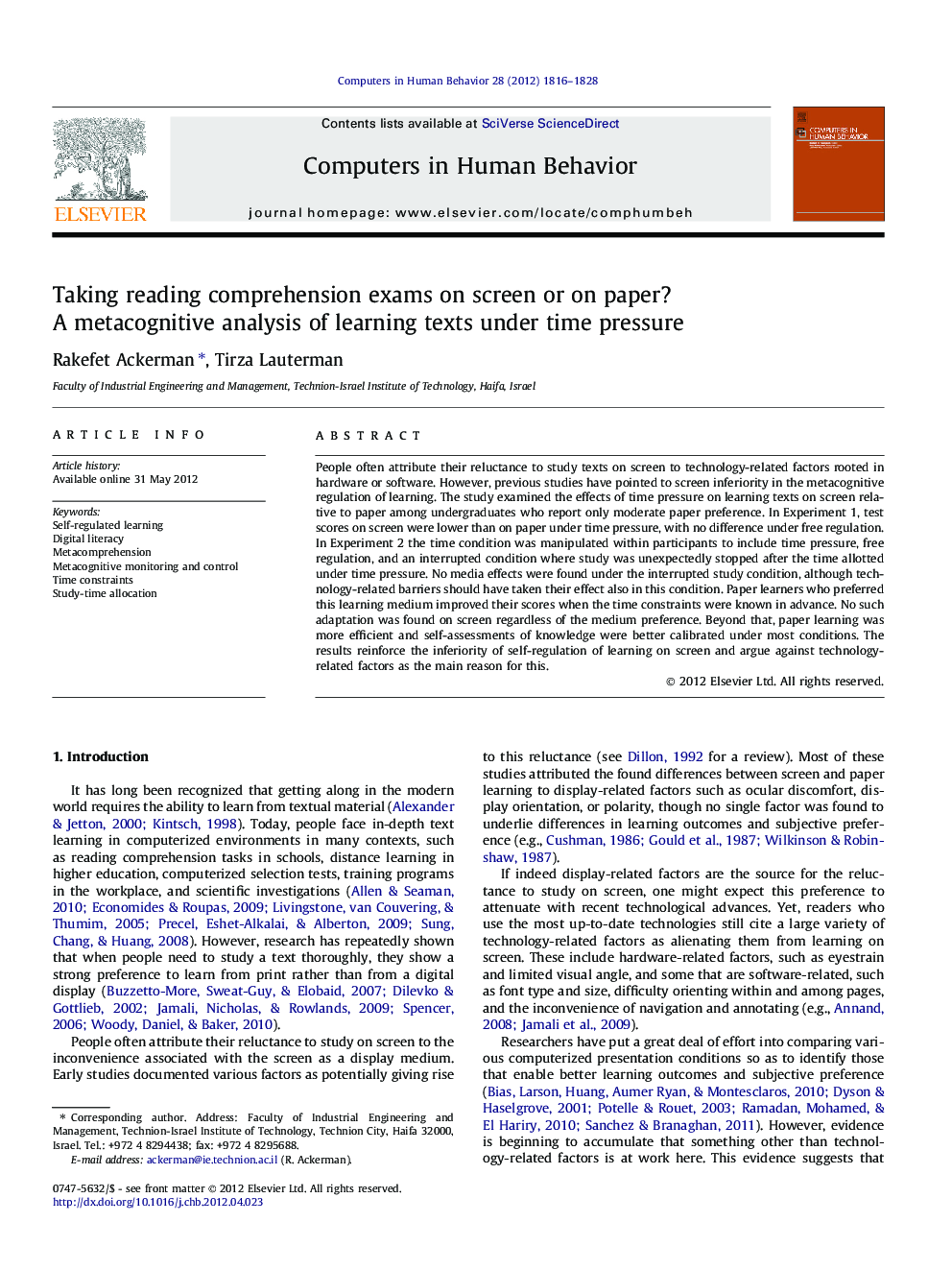| Article ID | Journal | Published Year | Pages | File Type |
|---|---|---|---|---|
| 351123 | Computers in Human Behavior | 2012 | 13 Pages |
People often attribute their reluctance to study texts on screen to technology-related factors rooted in hardware or software. However, previous studies have pointed to screen inferiority in the metacognitive regulation of learning. The study examined the effects of time pressure on learning texts on screen relative to paper among undergraduates who report only moderate paper preference. In Experiment 1, test scores on screen were lower than on paper under time pressure, with no difference under free regulation. In Experiment 2 the time condition was manipulated within participants to include time pressure, free regulation, and an interrupted condition where study was unexpectedly stopped after the time allotted under time pressure. No media effects were found under the interrupted study condition, although technology-related barriers should have taken their effect also in this condition. Paper learners who preferred this learning medium improved their scores when the time constraints were known in advance. No such adaptation was found on screen regardless of the medium preference. Beyond that, paper learning was more efficient and self-assessments of knowledge were better calibrated under most conditions. The results reinforce the inferiority of self-regulation of learning on screen and argue against technology-related factors as the main reason for this.
► Text learning under time pressure was less effective on screen than on paper. ► Learning was similarly effective on both media when free regulation was allowed. ► Knowing the time constraints in advance improved learning efficiency on paper only. ► The extent of paper preference was associated with this adaptation to time pressure. ► Technological factors are probably not the cause for the found screen inferiority.
